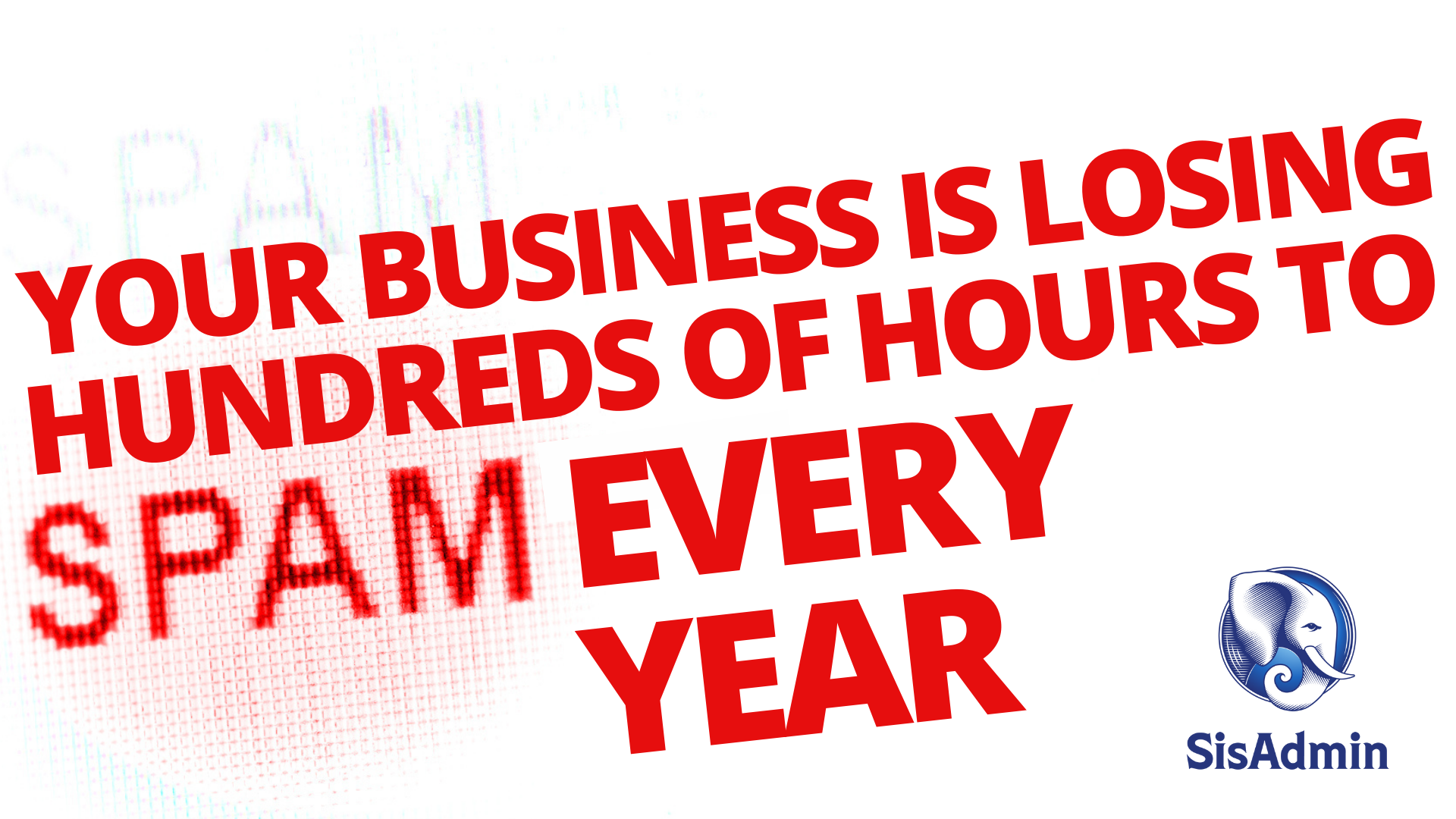aHR0cHMlM0ElMkYlMkZ5b3V0dS5iZSUyRnBKdjdJckRZYlc4Spam emails. Everyone hates them.
It’s not just the emotional pain of clearing spam from your inbox. Having to do that is a real productivity killer, too.
A recent report found that each one of your employees could be losing up to 80 hours each year, thanks to filtering and deleting spam emails.
That’s a LOT of lost productivity.
Anywhere between 45% and 85% of emails generated each day are spam emails. And worryingly, that also includes malicious emails and those hoping to infect you with malware.
Although we don’t all receive the same number of emails every day, the hours lost to filtering them out adds up.
If one of your employees gets 30 external emails a day, they’d get around 30 spam emails each week. That would work out to around 5 hours each year wasted on sorting through and deleting them.
For an employee who gets up to 60 emails a day, it would be an average of 11 hours a year wasted.
And for someone who gets more than 100 emails each day, you’re looking at around 80 hours of productivity lost to filtering emails each year.
Now add that up for each one of your team and you could be looking at a big number.
Not only that, but since a proportion of these emails will be phishing attempts (that’s where the sender wants you to take an action that will secretly give them access to sensitive data), it’s also a big risk to your data security too.
Of course, there are a few things you can do to cut down the time spent on dealing with spam emails. The first is to make use of the spam and junk email filters available from your email service.
You may also consider bringing in dedicated anti-spam and anti-phishing tools.
Finally, you can make your people aware of the risks of spam, how to spot spam emails, and the best way to deal with it to save time and minimize the risk of malware or a data breach.
If that kind of training is something you’d like some help with, get in touch.
Published with permission from Your Tech Updates.
